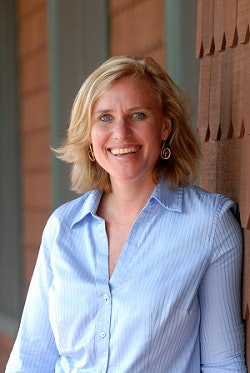Leveraging the power of innovative technology, The Common Application has created a new transfer application experience for students who may be returning to school through nontraditional pipelines.
The new experience simplifies the admissions process for transfer or other nontraditional students by offering a dynamic and tailored application for a student’s unique background. It also provides institutions with an opportunity to reframe admissions application processes, which largely have been oriented to the traditional first-year population of students entering from high school.
 Jenny Rickard
Jenny Rickard“Providing equity of experience using the Common App to our transfer population, currently 44% of whom are the first in their families to attend college, is key to our mission of promoting access,” said Jenny Rickard, president and CEO of The Common Application. “We’re wanting to be able to make those connections between students seeking to transfer or return to education, to try to really streamline that process for them.”
The Common App built its new transfer application in collaboration with Liaison International, a leading graduate and professional admissions solution provider. Officials developed the transfer application after convening a Transfer Advisory Committee and after hearing concerns about barriers and challenges that transfer students faced in the admissions process.
Studies show that nearly 40 percent of students transfer at least once throughout their post-secondary matriculation, with the greatest number of students transferring in from two-year public institutions. The Transfer Advisory Committee is composed of individuals from 29 two- and four-year institutions who are knowledgeable about the needs of students transferring from traditional educational settings, military service or from the workforce.
Common App institutional members “sometimes have a challenge trying to find out, ‘Well, who wants to transfer?’” Rickard said. “They know [students come from] high school to college – but from either community college to college, or college to college, or from work to coming back to study, that has been a challenge for institutions.”
Transfer Advisory Committee member Margaret K. Omwenga, the registrar at Prince George’s Community College, has been working with community college and transfer students for many years. The Common App’s new transfer application will be beneficial to students who have gaps in educational experience because “life happened,” she said.
“They may need to share more details about their experiences,” Omwenga explained, adding that the App features help to streamline and ease the complexities of the transfer and application process.
In her own test use of the application, she found that the Common App even featured her high school from Nairobi, Kenya. That can be “exciting to see,” she said, especially for service members who have been completing courses abroad online, or for international students.
“They don’t necessarily build that into [application] portals,” Omwenga said.
Questions for older transfer students in the new experience will also vary from previous application models, Rickard said. “For a student who might be 30, who had work experience, life experience, we were asking them about their parents or even asking them some questions about what they might have been doing in college or high school when that might have been a long time ago.”
Now, “the questions are geared specifically to their experiences and not just [first-year] experiences that transfers kind of have to fit into,” said Cindy Childress, enrollment database and communications coordinator at Lynchburg College.
In addition to being able to share more details about their life or work experiences in an “Extended Profile,” transfer students can share additional information about courses and certificates earned, volunteer work and achievements. They also can send their transcripts and other documents to multiple schools from a central document hub, reducing money spent on transcript fees and time spent completing applications.
Nine schools are participating in the Common App’s early adopter program starting this month, including the University of Dayton, King’s College, Dominican University of California and Lynchburg. Other institutions will be able to use the platform at the start of the 2018-2019 application cycle.
Rita Detwiler, vice president for enrollment management at Lynchburg, said admissions officials were eager to be a part of the early adopter program because “transfer students, for decades, have been a critical part of our community.”
Lynchburg enrollment officials said the transfer application will afford them an “opportunity to reach students who we may not have reached with our traditional application or the Common App as it was,” Childress said. “I think it’s going to generate some excitement.”
Tiffany Pennamon can be reached at [email protected]. You can follow her on Twitter @tiffanypennamon.















